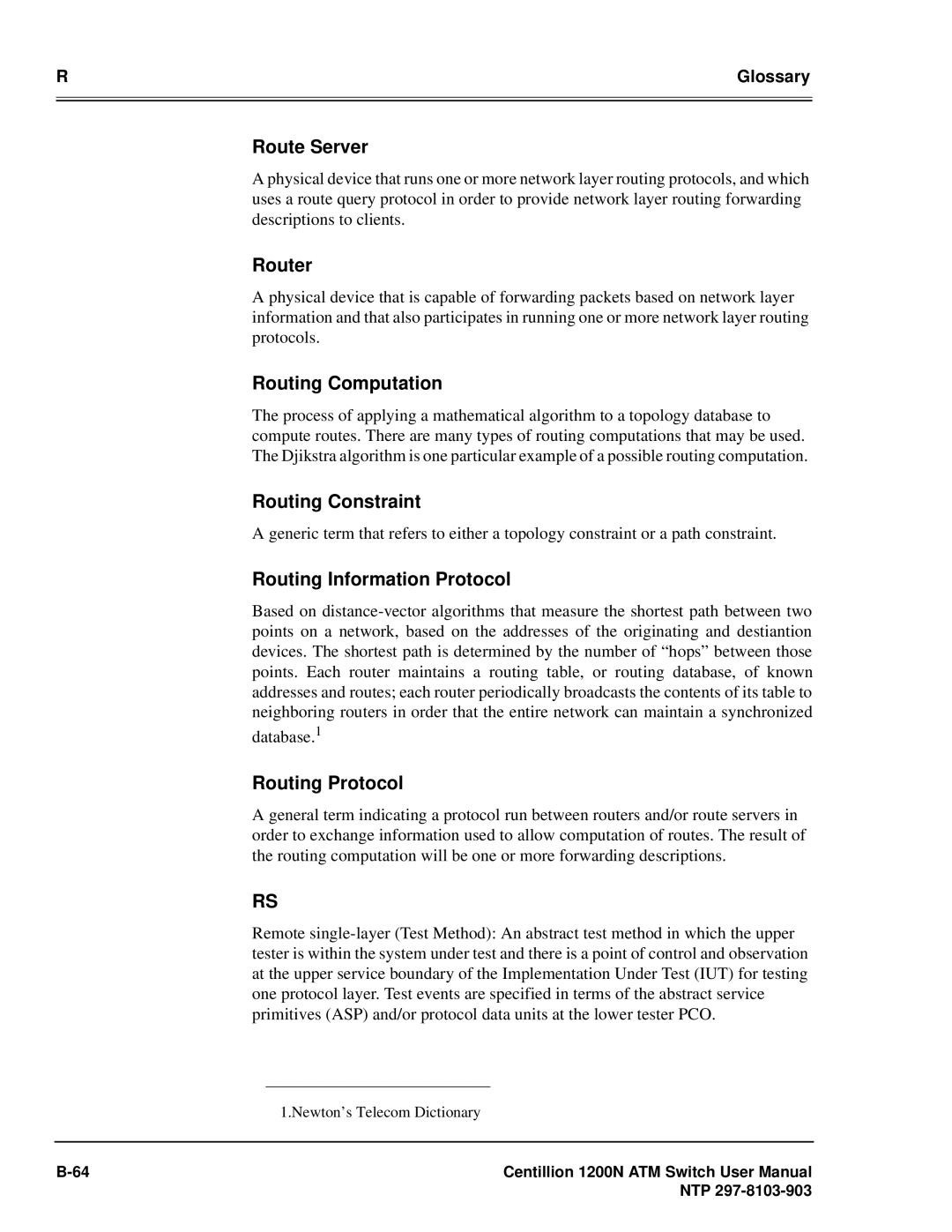R | Glossary |
|
|
|
|
Route Server
A physical device that runs one or more network layer routing protocols, and which uses a route query protocol in order to provide network layer routing forwarding descriptions to clients.
Router
A physical device that is capable of forwarding packets based on network layer information and that also participates in running one or more network layer routing protocols.
Routing Computation
The process of applying a mathematical algorithm to a topology database to compute routes. There are many types of routing computations that may be used. The Djikstra algorithm is one particular example of a possible routing computation.
Routing Constraint
A generic term that refers to either a topology constraint or a path constraint.
Routing Information Protocol
Based on
database.1
Routing Protocol
A general term indicating a protocol run between routers and/or route servers in order to exchange information used to allow computation of routes. The result of the routing computation will be one or more forwarding descriptions.
RS
Remote
| 1.Newton’s Telecom Dictionary |
|
|
Centillion 1200N ATM Switch User Manual | |
| NTP |
